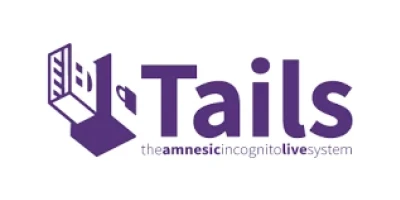
The Tails 6.11 release is here as the latest version of the privacy- and anonymity-centric OS, and it brings several critical updates that you need to be aware of to maintain the utmost security and privacy in your workflows. This release is packed with crucial security patches addressing vulnerabilities identified by an external security audit, ensuring that attackers can no longer compromise your applications and track your activities. With significant updates to the Tor Browser, Thunderbird, and other integrated tools, Tails 6.11 enhances your user experience, offering early warnings for potential partition errors and more intuitive troubleshooting features.
One of the standout security measures in this release is the emphasis on the manual upgrade. This step is essential to clear out any malicious software that may have exploited previous vulnerabilities. Additionally, the phased-out support for Trezor hardware wallets aligns with Debian 12 compatibility, indicating Tails' commitment to staying updated with current security standards. These changes mean you can confidently manage and deploy Tails, knowing that your systems are safeguarded against advanced threats and equipped with the latest privacy tools. Let's examine this release's defining features and updates and how it could benefit the privacy and security of your Linux systems.
Addressing Critical Security Flaws
 One of the most significant takeaways from the Tails 6.11 release is the focus on resolving critical security vulnerabilities. These vulnerabilities were uncovered during a comprehensive external security audit conducted by Radically Open Security. While these flaws could not be easily exploited, they exposed systems to a range of threats if infiltrated by a potent attacker who had already compromised an application within Tails. The implications of these vulnerabilities were significant enough to warrant immediate attention, underscoring the critical role that proactive security measures play in system integrity.
One of the most significant takeaways from the Tails 6.11 release is the focus on resolving critical security vulnerabilities. These vulnerabilities were uncovered during a comprehensive external security audit conducted by Radically Open Security. While these flaws could not be easily exploited, they exposed systems to a range of threats if infiltrated by a potent attacker who had already compromised an application within Tails. The implications of these vulnerabilities were significant enough to warrant immediate attention, underscoring the critical role that proactive security measures play in system integrity.
This release is tailored to mitigate several risks, including preventing permanent malicious software installations, protecting against monitoring activities, and safeguarding persistent storage settings from unauthorized changes. For Linux security admins, particularly those responsible for managing Tails environments, this means enhanced peace of mind with reinforced defenses against sophisticated attacks.
The Importance of Manual Upgrades
In a starkly practical recommendation, the Tails 6.11 release emphasizes the need for manual upgrades, especially for users who have not updated their systems since January 9, 2025. This requirement stems from some updates that may have been compromised due to vulnerabilities in the Tails Upgrader. By conducting a manual upgrade, you can ensure the removal of any potentially malicious software lingering from prior vulnerabilities.
The necessity of manual updates highlights an often-overlooked aspect of system administration: the vigilance required in regularly updating security measures. While automatic updates provide convenience, they are not failsafe. This release serves as a reminder for all administrators to manually verify the integrity and efficacy of security updates periodically.
Enhanced User Experience and Functionality
Beyond security patches, Tails 6.11 integrates various user experience improvements that further align with the needs of security-focused administrators. Users will appreciate the updated versions of key tools like the Tor Browser and Thunderbird, ensuring you have access to the latest features and security protocols.
 Source: Tails.netFurthermore, a new feature that detects partitioning errors early is handy for admins' workflows. Imagine running critical operations only to experience disruptions due to persistent storage failures. This enhancement lets you promptly identify, remediate, and resolve potential partitioning issues, saving valuable time and resources.
Source: Tails.netFurthermore, a new feature that detects partitioning errors early is handy for admins' workflows. Imagine running critical operations only to experience disruptions due to persistent storage failures. This enhancement lets you promptly identify, remediate, and resolve potential partitioning issues, saving valuable time and resources.
Another noteworthy change is the decision to phase out support for Trezor hardware wallets. While this might initially seem restrictive, it illustrates the commitment of Tails to maintaining compatibility with the latest Debian 12 standards. Trezor wallet users must adapt, but safeguarding compatibility ensures that Tails remains a reliable option for secure Linux environments.
Improved Interface and Troubleshooting
While security and performance improvements take center stage, the Tails 6.11 release introduces intuitive interface enhancements that simplify administrative tasks. For example, GNOME Text Editor's update prevents it from automatically reopening the last opened file. This seemingly minor tweak offers greater control over document management, and in a security context, it ensures sensitive information is not inadvertently exposed.
Moreover, for those overseeing multi-user environments, the Tor Connection Assistant now features a direct link accessible from the status icon menu. This provides quick, efficient navigation to essential connection settings, streamlining the process and increasing operational efficiency.
When issues arise, swift resolution is paramount. Tails 6.11 includes improved WhisperBack reports to simplify troubleshooting. With more intuitive and detailed diagnostics, administrators can quickly identify the root causes of problems, reducing downtime and maintaining secure operations.
Maximizing Security Potential
 As a Linux security admin, your primary goal is maintaining the highest security standards while ensuring operational smoothness. Tails 6.11 addresses current vulnerabilities and focuses on creating a more efficient, user-friendly environment. These updates play a significant role in fortifying the security architecture, requiring an understanding of technical improvements and practical implementations.
As a Linux security admin, your primary goal is maintaining the highest security standards while ensuring operational smoothness. Tails 6.11 addresses current vulnerabilities and focuses on creating a more efficient, user-friendly environment. These updates play a significant role in fortifying the security architecture, requiring an understanding of technical improvements and practical implementations.
To maximize these enhancements, you should view the Tails 6.11 release as part of a broader, ongoing security strategy. Consistently integrating the latest updates is just one aspect; fostering a security culture that emphasizes awareness and adaptability in the face of evolving threats is equally crucial. Using tools and updates effectively requires a comprehensive understanding of the overall security landscape and the specific context in which your systems operate.
Final Thoughts & Looking Forward: The Future Is Bright for Tails OS
The release of Tails 6.11 serves as a reminder of the continuous evolution required to maintain robust security postures in Linux environments. As administrators, the challenge is two-fold: keeping abreast of new updates and ensuring our broader infrastructure remains secure. Tails 6.11 represents a significant step forward in privacy tooling, offering reassurance and new challenges as we seek further secure and privacy-oriented solutions.
Moving forward, it’s essential to remain adaptable and informed about further developments in privacy-conscious security applications. As technologies and threats evolve, so must the strategies and tools employed to counteract them. This proactive approach ensures that your systems remain secure while contributing to the broader goal of maintaining digital privacy and protection across Linux environments.
Tails 6.11 offers an array of compelling updates essential for any Linux security admin dedicated to privacy and security. This release underscores the importance of staying current and vigilant in managing secure Linux environments by addressing critical vulnerabilities, enhancing user interactions, and providing a more robust platform. Whether you manage systems for a small organization or a vast network, applying the insights from this release will undoubtedly fortify your defenses and enhance your operations.
Have you given Tails 6.11 a try? Let us know what you think @lnxsec!














